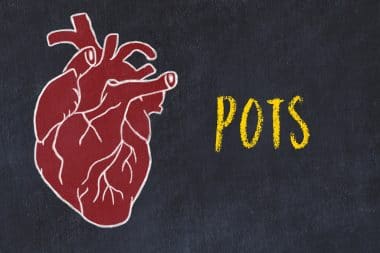There are billions of microscopic entities and bacteria that live in your mouth. These do influence the health of teeth and gums and they positively do cause problems for the rest of your body and possibly the heart and blood vessels. If you improve your oral health you may find that you are preventing cardiovascular problems as well as other health issues.
It does seem a bit strange that problems in your mouth cause diseases in other parts in the body, but the Harvard Heart Letter specifically states that people with periodontitis or erosion of tissues and bones in the mouth release bacteria into the bloodstream. There are many species of bacteria that cause periodontitis and these are often found in the atherosclerotic plaque in your arteries.
An oral bacterium also harms blood vessels and can cause blood clots by releasing toxins that are similar to proteins. The immune system responds to these toxins and actually harms your vessel walls. This leads to development of harmful blood clots. Inflammation in the mouth causes inflammation throughout the body and this includes the arteries. Anything that hurts the arteries or blood vessels in the body will lead to heart attacks and strokes.
Not matter what the conclusion to dental health and heart disease are, it is imperative that you practice good oral hygiene on a daily basis. After all, the mouth is the opening to the rest of the body.
Taking Care of your Teeth and Gums and Mouth
Although there is still ongoing debate about whether or not gum disease and mouth bacteria cause heart problems, this should not be a reason to quit taking care of your teeth. If you follow several common sense steps you entire health will be helped.
- Brush your teeth at a minimum of twice a day. It is customary to brush in the morning and before going to bed. If you are able, it would be a good idea to brush after lunch when you generally eat very acidic foods.
- Floss your teeth or use a water pick at least once a day. Flossing and water picking gets the food particles from between your teeth. These particles lead to decay and bacterial droppings.
Use standard dental floss which is the most effective tool for cleaning hte tight spaces between your teeth. Also use floss to “brush” up and down the sides of each tooth. If dental floss gets stuck in your teeth use a waxed variety of floss. Use a floss holder if it is difficult for you to floss and you can also use special brushes, sticks and picks that are designed to get in those tight spaces between teeth.
A water pick or oral irrigator aims a stream of water at your teeth. The water pick can help remove food particles from teeth and can reduce gum diseases. Do not use water picks as substitutes for brushing, however.
- Replace your toothbrush every time you are ill, every three to four months and when bristles are frayed.
- See your dentist at least twice a year for regular dental checkups and cleanings.
- Use different types of toothpastes that are on the market and are designed to reduce plaque, decay, and take away food particles.
If you have sensitive tooth, use desensitizing toothpaste. Generally sensitive teeth result from damaged tooth enamel or perhaps bare roots. You can also have a cavity, cracked tooth or the side effect of bleaching or whitening products.
Use fluoride tooth paste. Fluorides do strengthen tooth enamel and reduce pain.
Cover exposed root surfaces if you have them. This needs to be done by a dentist who might place a sealant to cover the exposed roots.
If you have very sensitive teeth you may need a root canal. This treats problems in the tooth’s soft dental pulp.
Cardiovascular Health and the Dentist
If you have a heart condition you do need to inform your dentist. Your dental practitioner also needs a complete medical history and list of the prescriptions and drugs you are taking or any cardiovascular conditions. This helps in determining the best dental treatments and what medications or sedating should be used in dental procedures.
Give your dentist the name and phone number or your heart doctor in case there is a problem with treatments or prospective treatments. If you are nervous about undergoing a dental procedure because of stress or anxiety in going to the dentist, talk with your dental provider. You can always find more information about how to make you dental health work with your cardiovascular health.
Specifics Cardiovascular Disease and Dental health
If you have cardiovascular diseases and threats of strokes and it is time for oral surgery, talk to your dentist or surgeon about what you need to do concerning pain control during and after dental surgery. This includes the use of sedation, narcotic pain relievers and anesthetics.
There are those who are at high risk of infections the inner lining of the heart or bacterial endocarditis. If you are a patient with endocarditis you need to take singular care to practice good oral cleanliness every single day. You may also be prescribed antibiotics previous to have any type of dental work done, this is to prevent the risk of infections.
After you have suffered from a heart attack or myocardial infarction you do need to wait at least six months before undergoing extensive dental treatments. If you need dental cleaning there is no problem, but do make sure your dentist has oxygen and nitroglycerin available.
If you are taking anticoagulants or blood thinners you need to inform your dentist. These medications cause excessive bleeding which could be a problem during oral surgery procedures.
High blood pressure or hypertension can cause dry mouth or alter the sense of taste. If you are using calcium channel blockers the gum tissues in your mouth may swell and overgrow which causes problems with chewing. If you experience gum overgrowth your dentist will need to give you oral hygiene instructions and have you make numerous dental visits for cleaning.
Angina patients are treated with calcium channel blockers. You may find that if you have gum overgrowth because of channel blockers and you may need gum surgery to reduce the possibility of gum disease and excess bacteria in the mouth. Make sure you have your heart evaluated by your heart doctor before having any procedures that involve cutting and suturing in the mouth. You may need to have emergency dental care in a hospital setting if your heart disease will cause an emergency.
If you are talking anticoagulants you may have problems of gums that bleed and are painful. These anticoagulants are intended to prevent strokes, but if you have had a stroke and you have an inability to produce saliva, you may need to your dentist to recommend artificial salvias. If your dominate arm and hand plus your face and tongue are affected you may need to use fluoride gels and adapted brushing or flossing techniques.
Good dental health is vital to keep your entire body healthy. The mouth is the place where millions of bacteria like to live and quite a number of these bacteria are harmful. Do be aware that there is always a possibility of bacteria traveling through the blood stream to the heart and causing problems. Take care of your teeth, brush at a minimum of twice a day, floss once a day and seek good dental attention on a regular basis to prevent heart problems due to dental decay.








